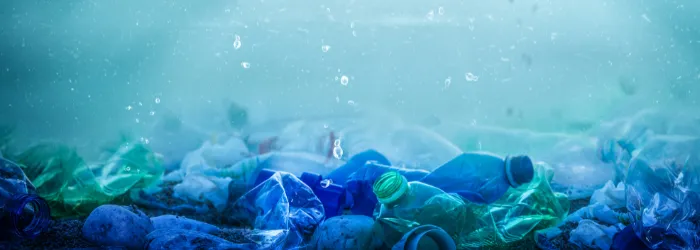Plastic Free July

Prepping for Plastic Free July
A plastic free attitude doesn’t have to be limited to just one month – we can use Plastic Free July as a roadmap for year-round changes.
Started by a small team in Western Australia in 2011, Plastic Free July is all about taking small steps toward a big vision – a world free of plastic waste. Since its inception, Plastic Free July has developed into one of the most influential environmental campaigns in the world, with millions of people across the globe taking part each year.
Let’s face it – the diabolical levels of plastic now present in the environment are well-documented, with the amount of plastic flowing into oceans expected to triple by 2040, to 29 million metric tons each year. And the horrifying prediction by the Ellen MacArthur Foundation – that there will be more plastic than fish in the sea by 2050 – is by now a “phrase of the age” which encapsulates the severity of the situation.
For communities and individuals, nowadays the amount of plastic present in our day to day lives is difficult to fathom, and even harder to keep a track of! From plastic water bottles to cling wrap, credit cards to coffee cups, pens, bread tags, bags, and balloons… the list is endless. Plastic is in almost everything.
But don’t despair – there are some nifty tricks to getting started in reducing your plastic use.
With the NSW Government joining the ranks of every other state government in banning single-use plastic bags, Australians everywhere can take heart from the fact that governments are finally stepping up. South Australia, Western Australia and ACT all have blanket single-use plastic bans in effect, while NSW has committed to phasing out single-use plastics like cotton buds, cutlery, and plastic plates from November this year. Queensland was the first to ban polystyrene food-ware in 2021, while Northern Territory was one of the earliest states to ban lightweight plastic bags back in 2011. Tasmania and Victoria have also finally committed to implementing Container Deposit Schemes across 2022 and 2023 – the last states to do so.
A comprehensive Container Deposit Scheme is a big win for the nation – it has been reported that these schemes reduce the amount of beverage containers on the coasts of both the United States and Australia by 40 per cent.
So, what can you as an individual do to get involved in Plastic Free July? Remember, it’s all about starting small, and aiming big!
At home
In the kitchen, look out for plastic free alternatives when buying fruit and veggies. Avoid styrofoam meat trays and consider buying meat from the butcher – you could even bring your own reusable container.
Grow your own herbs and eliminate plastic packaging!
Think about lining your bin with newspaper instead of plastic bags. It works especially well if you can empty your indoor bin directly into the outdoor bin.
Buy in bulk (or buy plastic free products) – whether it’s dry goods, like nuts and grains, laundry detergents or bathroom products!
Many ecological skincare brands are now selling their products in glass containers.
In the garden, use empty egg cartons for growing and planting seedlings and make compost to avoid plastic packaged mixes.
Out and about
Going shopping? Don’t forget your reusable bags – leave some in the car and carry one around with you in your handbag – they fold up really small!
- Bring a reusable coffee cup to work. Or if you’ve got ten minutes, why not dine in?
- Local institutions like a bakery or take-away may agree to fill up your own reusable containers!
- Instead of getting food delivered, visit a local eatery on foot and opt to eat-in.
- Invest in a reusable water bottle and make naked lunches for the little ones in a stainless-steel box.
- Encourage local businesses to use more eco-friendly options when wrapping or packaging goods.
Recycle recycle recycle
Recycling doesn’t stop at tossing your waste in the kerbside bin! Now you can collect and drop off your soft plastics at a REDcycle collection bin at Coles or Woolworths.
You can also buy recycled. One of the best ways to reduce waste in the environment is to buy products made from (or packaged in) recycled materials. A product made from recycled plastic not only stops old plastic from entering landfill – it also prevents another item being produced from virgin plastics! It’s a win-win. Clean Up Australia has an extensive catalogue of products made from recycled materials on our platform Buy Recycled.
In a circular economy, everything is a resource and there is no such thing as waste.
Take action
Remember, taking small steps individually is a great way to reduce plastic consumption and disposal at a personal level. But it’s all part of a broader movement in which we encourage communities and the powers-that-be to make lasting changes! Whether that means telling your friends about recycling soft plastics or writing to your local MP about improving a community recycling service. You could also take things into your own hands and organise a Clean Up, removing plastics from your local streets.
